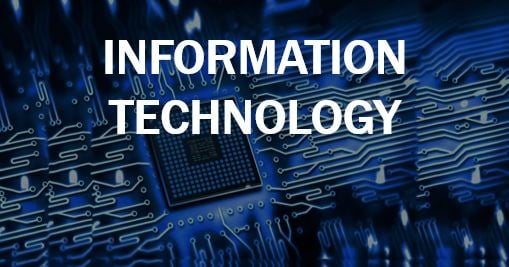Information technology (IT) is the use of any computers, storage, networking and other physical devices, infrastructure and processes to create, process, store, secure and exchange all forms of electronic data.
In other words, IT is the use of computers to create, process, store, retrieve, and exchange all kinds of electronic data and information. It is building communications networks for a company, safeguarding data and information, creating and administering databases, helping employees troubleshoot problems with their computers or mobile devices, or doing a range of other work to ensure the efficiency and security of business information systems.
It is used by everyone from enterprise companies all the way down to one-person businesses and local operations. Global companies use it to manage data and innovate their processes.
Here are some definitions written by some authors Harold J. Leavitt and Thomas L. Whisler :
- Techniques for the fast processing of information.
- The use of statistical and mathematical models for decision-making.
- The “simulation of higher-order thinking through computer programs.”
The hard and soft skills you’ll learn may include :
- Computer programming
- Creative problem-solving
- Communication
- Implementing cyber security
- Data analysis
- Project management
What Are the Types of Information Technology?
The different trends within IT include, but aren’t limited to :
- Analytics
- Automation
- Artificial intelligence
- Cloud computing
- Communications
- Cyber security
- Data/database management
- Infrastructure
- Internet of things
- Machine learning
- Maintenance and repair
- Networks
- Robotics
- Software
- SCADA
Examples of Information Technology :
- Server upgrade : One or more data center server near the end of their operational and maintenance lifecycle.
- Security monitoring : Businesses routinely employ tools to monitor and log activity in applications, networks and system.
- New software : The business determines a need for a new mobile application that can allow customers to log in and access account information or conduct other transactions from smartphones and tablets.
- Business improvement : A business requires more availability from a critical application to help with revenue or business continuance strategies.
- User support : Developers are building a major upgrade for a vital business application. Developers and admins will collaborate to create new documentation for the upgrade.
What important Role play by IT ?
IT plays a prominent role in business and provides a foundation for much of our current workforce. From communications to data management and operational efficiency, IT supports many business functions and helps drive productivity.
- Data Overload : Businesses need to process huge amounts of data. This requires large amounts of processing power, sophisticated software and human analytical skills.
- Mobile and wireless usages : More employers are offering remote work options that require smartphones, tablets and laptops with wireless hotspots and roaming ability.
- Cloud services : Most businesses no longer operate their own “server farms” to store massive amounts of data. Many businesses now work with cloud services—third-party hosting platforms that maintain that data.
- Bandwidth for video hosting : Videoconferencing solutions have become more and more popular, so more network bandwidth is needed to support them sufficiently.
Careers in Information Technology :
A team of administrators and other technical staffers deploy and manage a company’s IT infrastructure and assets. IT teams depend on a range of specialized information and technology skills and knowledge to support equipment, applications and activities.
- Chief information officer (CIO). This person is responsible for IT and computer systems that support the goals of the business.
- Chief technology officer (CTO). This person sets the technology goals and policies within an organization.
- IT director. This person is responsible for the function of the business’s technology tools and processes. This role may also be called IT manager or IT leader.
- System administrator (sys admin). This person configures, manages, supports and troubleshoots a multiuser computing environment. Within a business, this role can be divided up by technology, requiring an administrator or team dedicated to server, desktop, network administration, virtualization, or other components and technologies.
- Application manager. This person’s role centers on the provisioning and management of a high-value business application, such as Exchange.
- Developer or software engineer. This person or team writes, updates and tests code for computer programs to meet internal or customer-facing business objectives.
- Chief IT architect or IT architect. This person examines and changes IT functions to best support the business.
